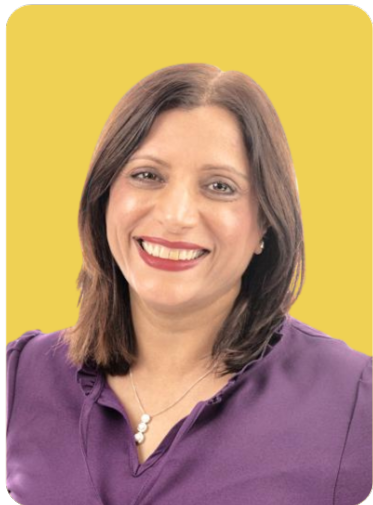- +44 (0)191 820 3114
- info@aoea.co.uk
Our Great Practice sessions with AoEA Associates and Senior Associates gives an opportunity for our own accredited members to share their experience and knowledge with fellow senior educationalists. There are sessions across the day covering aspects of our Senior Associate criteria, as well as some key areas of the education landscape.
This year, the themes are as follows:
Take a look below, to see who will be sharing their experiences and insight.

Head of School Improvement,
Dysgu
Louise will be sharing the journey of developing an approach to evaluation that moves from accountability to proportionally valuing what matters and making a difference to learners.
Louise works in the national professional learning and leadership body in Wales: Dysgu. Prior to this she worked in a regional role supporting collaboration across the Central South Consortium as Principal Improvement Partner for Professional Learning and Pedagogy. Her work is deeply embedded in the development of a self-improving school system, supporting schools to engage in critical enquiry, curriculum reform, and collaborative learning models. She is committed to work that makes a difference to learners and has a keen interest in evaluation for improvement.

Principal,
St Teresa's Nursery School
What if inclusion wasn’t an accommodation but the architecture of a knowledge‑rich curriculum? This keynote explores how Universal Design for Learning (UDL) and human‑centred AI work together to design rich, coherent learning that adapts to variability, not averages. I’ll show how AI can strengthen curriculum retrieval and spaced review, surface multiple means of engagement and representation, and provide just‑in‑time scaffolds without lowering challenge. You’ll see concrete patterns—co‑planning with AI, designing for transfer, building adaptive checks for understanding—that save teacher time while expanding learner agency. Grounded in ethics and pedagogy, this talk moves beyond tools to principles you can trust, so every learner can access powerful knowledge and contribute meaningfully. Expect clarity, courage, and a blueprint for change.
Clare is a leading innovator in early years education with nearly three decades of experience as an Advisory Teacher, Regional Capacity Building Officer, and Principal of St. Teresa’s Nursery School in West Belfast. A Senior Associate of the AoEA and Associate of ETI & CCMS, Clare is deeply committed to inclusive education, recently qualifying in Universal Design for Learning through Lantec Digital. Clare continues to collaborate on digital skills projects with Queens University and Oxford University and contribute to the Innovation Forum, driving forward-thinking initiatives in education. Her holistic leadership ensures every child is met at their point of need, and a sought-after speaker and thought leader.

Head of Development,
DFE Rise Adviser and Director of Leadership and Transformation
Narinder’s presentation shares what emerges when we truly listen across communities, across divides, and across the stories that shape us. In a year marked by tension, geopolitical unrest, and increasingly polarised discourse, it returns us to a fundamental truth: at the heart of the work we influence are children, and those we support carry the responsibility of preparing them for a future we cannot yet see. As advisers, our work operates at a different level building capacity in others, shaping systems, and influencing the conditions in which educators lead. Drawing on real encounters and grounded in core educational values, this session explores how we can model and enable the practices we believe in: listening deeply while challenging thoughtfully, creating the conditions for difficult conversations, examining assumptions, and equipping school leaders to help young people navigate complexity with both compassion and critical thinking.
Narinder is a seasoned educational leader, executive coach, and author with extensive experience in transforming schools and curriculum systems. She has led some of England’s most challenging primary schools, embedding compassionate, inclusive, and evidence-based approaches to teaching and learning. Currently, she serves as a DfE RISE Adviser, supporting schools and leaders to achieve sustainable improvement and excellence. As one of the co-founders of CS Reboot and the AI in Education group, she drives initiatives that make computer science and AI education accessible and inspiring for children from all backgrounds.
Narinder advises schools and educational trusts on strategic improvement, accountability, and leadership development, helping leaders translate vision into sustainable impact. Committed to equity, integrity, and purpose-driven change, Narinder champions initiatives that empower both educators and learners to thrive.

CEO, The Glass House Leadership Lab

Associate Principal & Positive Regard Specialist

Vice President - Education, ONVU Learning

Senior Lecturer and Partnership Lead,
Teesside University
Ollie will take the audience on a short journey from his PhD to governance, systems and structures, school improvement, precarity, a way forward, and kindness in leadership. He will explain how his work was influenced by research such as Kotter’s ‘series of errors’ which can cause organisations to fail’ (Leading Change 1996).
Ollie has been a secondary school teacher for over 20 years, including 11 years as a senior leader. His PhD led to new perspectives on school improvement. His work in Hartlepool demonstrated how the understandings gathered during his PhD could be used to improve schools. He has presented at the British Educational Research Association (BERA) and had a few papers published. His research focus is head teacher precarity. He now works at Teesside University as the Partnership Lead for ITT.

Area Lead for Curriculum, Teaching and Assessment (3-16),
Central South Consortium
Clarissa’s presentation explores how a value for money hierarchy is used in CSC to plan, design and deliver high quality professional learning in schools. It highlights the key components of effectiveness, efficiency, economy, sustainability and added value demonstrating how these principles are applied to create a wide range of professional learning opportunities to drive school improvement.
Clarissa joined Central South Consortium (CSC) in 2022 as Area Lead for curriculum, teaching and assessment 3-16 leading the strategic development, professional learning and support related to Curriculum for Wales (CfW), for all schools and settings across the region. Clarissa has over 20 years of leadership experience in primary schools and has had the privilege of leading highly effective school and organisational improvement aligned to her values of enabling all learners to make the best possible progress and reach their full potential.

Senior Professional Learning Adviser,
Education Durham
Peer-review offers a collaborative, supportive, non-hierarchical approach to school improvement. It can be transformative, through honest reflection and reciprocal vulnerability. Sarah will outline how she has worked with colleagues in Sunderland and Newcastle to establish a peer-review programme for leaders across geographical borders. She will discuss the strengths, challenges, and impact of this programme for school leaders across the region.
Sarah is a Senior Professional Learning Advisor with seven years of experience supporting leadership development, curriculum progression, and the creative arts. Prior to this, she was a secondary teacher and Faculty Leader in the North East. She leads Education Durham’s National Professional Qualifications and coaches middle and senior leaders in the UK and internationally. Sarah designs and delivers CPD for primary, secondary and special schools, working 1-2-1, with small groups and with whole cohorts. She also champions peer-review networks to strengthen practice across school communities.

Quality Improvement Officer,
Fife Council
In this presentation Jacqueline will outline the journey of one Scottish primary school in taking nurturing approaches forward over a 5-year period. The aim was to improve staff understanding of their role to enable them to feel skilled in using nurturing approaches and, as a consequence, improve the health, wellbeing and confidence of the pupils, staff and families.
Jacqueline has worked in Scottish education for over 25 years. She started off her career as a primary school teacher before progressing to Depute Headteacher. In 2017 she was appointed Headteacher of a school in a deprived area in Fife, Scotland, where she carried out work on developing nurturing approaches. Her current role is Quality Improvement Officer for Fife Council. She is a Scottish Improvement Leader and uses Quality Improvement Methodology to improve outcomes for pupils.

Service Manager, WISENDSS,
Wakefield Local Authority
Meeting the Needs of Children with SEND: How Do We Ensure Quality and Consistency?
Jo explores the key challenges in SEND provision and provides practical strategies for developing inclusive practices that can be applied across Local Authorities and Multi-Academy Trusts (MATs). At a time of increasing identification of children requiring Education, Health, and Care Plans (EHCPs) and significant budget pressures, Jo offers valuable guidance on how to build sustainable and effective support systems for children with Special Educational Needs and Disabilities (SEND).
Jo brings extensive senior leadership experience in SEND, including her work as a Specialist Leader for the National Programme for SEND/AP and as a Local Government Association Peer Reviewer. She also serves as a tutor for the Leading Change in SEND/AP National Programme, helping to develop well-equipped SEND/AP leaders across the country.

Area Planning Officer,
Education Authority Northern Ireland
Research highlighted that parents were found to be unfamiliar with the structures, routines and expectations of schools and led to recommendations to strengthen home-school collaboration. Building on this input and drawing inspiration from international good practice Maria developed a practical framework to improve home-school partnership for EAL families. Maria’s presentation focuses on an intervention which piloted two activities from the framework in schools located in Belfast and Dublin bringing about an enhanced sense of belonging for EAL families within the school community.
Maria has over 20 years’ experience in the primary school sector as a Senior Leader and SENCo. She was a lecturer in Pedagogy at St Mary’s University College and in Early Years Education at Stranmillis University College Belfast. In her current role as an Area Planning Officer, she engages with a range of key stakeholders to identify issues, seek consensus and support and writes the Case for Change for identified options. Maria has published research related to home-school partnership, Newcomer pupils, teacher wellbeing and educational research involving the use of interpreters.

Head of English,
Tweedmouth Community Middle School
Sheryl will explore the impact of structured oracy initiatives across KS2 and KS3 on pupils’ communication skills, critical thinking, and personal development. She will explain how it has increased pupils’ self-awareness and ability to engage in meaningful dialogue, refining their reasoning skills and developing confidence in structured discussions. Beyond the classroom, the transformation of Parents’ Evenings into ‘Know More; Remember More’ sessions has demonstrated the power of oracy in strengthening home-school collaboration.
Sheryl is an experienced English teacher who has worked in secondary and middle school settings including Out of College Provision for pupils at risk of permanent exclusion. She is currently Head of English at a large Middle School in Northumberland. She is passionate about high-quality teaching and learning, working closely with the exam board, AQA, to support curriculum development, promote reading for pleasure, and enhance pupils’ oracy skills through Voice 21.

Director,
Kate Stretch Education Consultancy
Kate was asked to support a primary school to improve the quality of teaching to ensure all pupils received the right level of challenge and develop positive attitudes to learning. She modelled her work on Goodrich’s (2024) ‘responsive coaching’ approach to ensure that staff felt empowered, fostering a collaborative environment where their expertise was respected, and their development was supported.
Kate is a dedicated independent adviser and consultant specialising in curriculum design and transforming teaching and learning. She has extensive experience in teaching, leadership, and advisory roles, both in Wales (where she was Associate Adviser for Curriculum, Teaching and Assessment with the Central South Consortium), and internationally. Kate’s passion and purpose is to bridge the gap between educational theory and classroom practice, creating more lightbulb moments than question marks. Through responsive coaching and innovation, Kate challenges outdated habits, empowers educators, and drives impactful change.

Principal,
St Joseph's College Coalisland
Desi will share his experience of transforming a post-primary school in a socio-economically deprived area in rural NI. The school was in an almost unsustainable and unviable position using all metrics but now 12 years into their transformation the school is performing close to NI benchmarks, financially secure and becoming the number 1 choice for many of our local primary schools.
Desi trained as and loved being a PE teacher. He stumbled into school leadership whilst completing an M.Ed. and began as his school’s first ever SENCo. Over the years he moved to needing to wear a suit as opposed to a tracksuit and is now Principal of his local community’s post-primary school. He believes in always encouraging others to push their boundaries, encouraging staff to be like a ‘magpie’ when it comes to ideas and initiatives, if it’s shiny and looks good- why can’t we do it too!